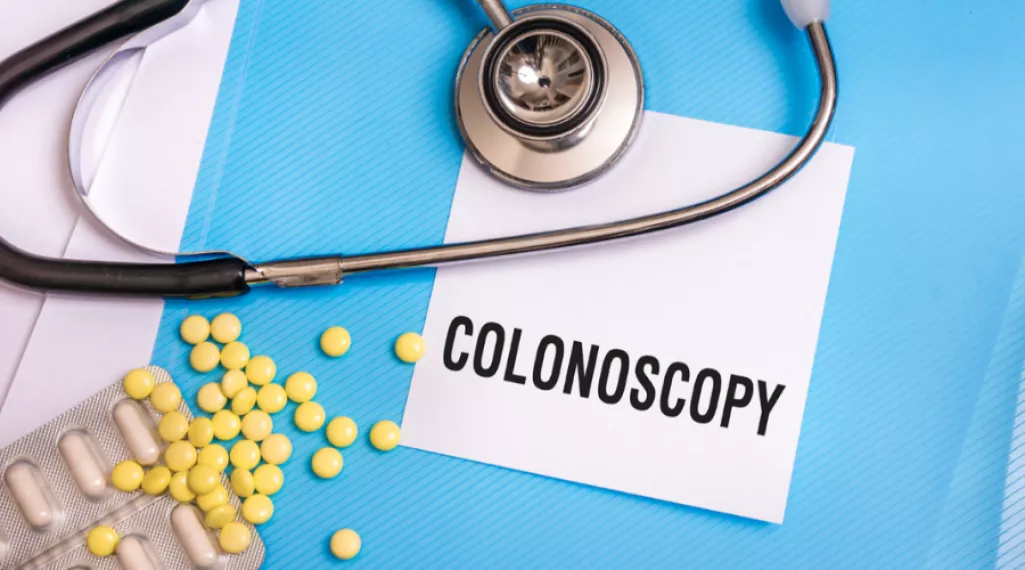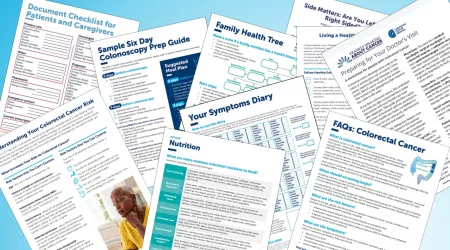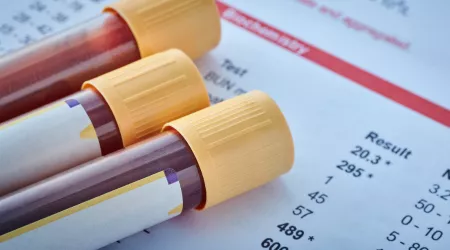
What are the best types of colonoscopy prep?

Getting a colonoscopy is one of the most effective ways to prevent colorectal cancer. A colonoscopy is a simple medical procedure that examines the inside of your colon for abnormalities or signs of disease. To complete this procedure, your colon must be cleaned out through a thorough bowel prep regimen.
There are several different types of colonoscopy prep regimens available today, including prescription and over-the-counter options. While it is important to consult your healthcare provider for guidance on the best prep option for you, it can be helpful to conduct some of your own research, as well. In this blog post, we’ll review some of the most popular options, what they entail, and why getting a colonoscopy matters.
Prescription-Based Prep Options
GoLYTELY
GoLYTELY is a solution made up of polyethylene glycol and electrolytes. It’s available in powder form and must be mixed with water before consuming. The administration process requires drinking a total of four liters over a period of several hours, which can prove challenging for some.
NuLYTELY
Similar to GoLYTELY, this prep regimen also involves drinking a large amount of a polyethylene glycol-based solution over a period of several hours. However, unlike GoLYTELY, NuLYTELY includes some flavor packs to add to the solution and make it more palatable. Some common flavors of NyLYTELY include lemon-lime, cherry, orange, and pineapple.
Moviprep
Moviprep requires patients to drink two liters of a solution made up of polyethylene glycol, electrolytes, and ascorbic acid. One liter of the solution is consumed the evening before the procedure, and one liter is consumed the morning of the procedure. Moviprep includes two flavor pack options – lemon and lime – that are designed to make it easier to drink.
PLENVU
This prep regimen involves drinking two liters of a polyethylene-glycol and electrolytes solution. Like Moviprep, one liter of the solution is consumed the evening before the procedure, while the other liter is consumed the morning of the procedure. PLENVU comes in two different flavors – orange and blackcurrant.
OsmoPrep
OsmoPrep is a series of tablets that contain sodium phosphate. Patients typically take a total of 32 tablets over a period of several hours, along with plenty of water to prevent dehydration. OsmoPrep is not recommended for patients with certain medical conditions, such as kidney disease or congestive heart failure.
Suprep
Suprep requires patients to drink two small bottles of a solution made of sodium sulfate, potassium sulfate, and magnesium sulfate. The first bottle is consumed the evening before the procedure, and the second bottle the morning of the procedure. Suprep has a berry flavor with a slightly sweet taste.
SUTAB
Rather than an oral solution, SUTAB offers another bowel prep option in tablet form. These tablets contain magnesium oxide and citric acid. Patients take a total of 24 tablets administered in 2 doses (12 tablets per dose), along with drinking plenty of water to prevent dehydration. SUTAB is more tolerable for many patients due to its pill form and may cause fewer side effects, such as nausea or vomiting, as a result.
CLENPIQ
CLENPIQ is another solution-based regimen including sodium picosulfate, magnesium oxide, and citric acid. The solution is drunk in two doses – one the evening before the procedure and one the morning of the procedure. CLENPIQ is available in lemon flavor, which is designed to make the medication more palatable and easier to drink.
GaviLyte
GaviLyte is another polyethylene-glycol and electrolyte formula available for colonoscopy prep. Patients typically drink a total of four liters of the solution over a period of several hours. GaviLyte is available in various flavors, depending on the region and the pharmacy where you get your prescription filled. These flavors include lemon, lime, cherry, and orange.
Visicol
This prep regimen involves taking a series of tablets that contain sodium phosphate. Patients typically take a total of 40 tablets over a period of several hours, along with plenty of water to prevent dehydration. Visicol is not recommended for patients with certain medical conditions, such as kidney disease or congestive heart failure.
Over-the-Counter Prep Options
DULCOLAX
This over-the-counter prep regimen involves taking a series of tablets that contain bisacodyl, which helps to stimulate the bowels. Patients typically take the DULCOLAX tablets the evening before the procedure.
MiraLAX
This popular prep regimen involves drinking a solution made up of polyethylene glycol and electrolytes. Patients typically drink a total of four liters of the solution over a period of several hours. MiraLAX comes in a variety of flavors depending on the availability in your region. Some of the most popular flavors include orange, lemon, cherry, and grape.
Blue Hope Nation Survey: Which Prep Options Do People Prefer?
It’s one thing to read about colonoscopy prep options and another thing to experience them firsthand. That’s why we conducted a recent survey on our private Facebook group, Blue Hope Nation, to find out which colonoscopy prep regimes people preferred.
This online community, made up of nearly thirteen-thousand members, ranges from patients and survivors to family and friends. These were the results of the survey:
- MiraLAX - 41%
- DULCOLAX - 17%
- Suprep - 13%
- SUTAB - 10%
- GoLYTELY - 8%
- Moviprep - 4%
- CLENPIQ - 2%
- GaviLyte - 2%
- PLENVU - 1%
- NuLYTELY - 1%
- OsmoPrep - 1%
- Visicol - 0%
"We've observed that patients who take their time to consider their prep options and speak with their healthcare provider beforehand have better experiences overall," said Marianne Pearson, Senior Director of Patient Navigation. “Still, we know that each person is different with a unique set of circumstances around colonoscopies. We’re so glad there are many great prep options available today!”
Knowledge is power, and knowing the facts can help to empower patients to take back control of their health outcomes.
Colonoscopy Prep Considerations & Alliance Resources
As with any medication, there’s always the possibility of side effects. While it can be helpful to do your own research, it’s also important to review any questions or concerns you may have with your doctor.
You’ll want to carefully follow your healthcare provider’s instructions when preparing for a colonoscopy. A thorough bowel preparation is necessary for a successful procedure. While some prep regimens may be more challenging than others, options are available to make the process more tolerable for everyone.
The Alliance also has some helpful information on preparing for your colonoscopy. If you feel you need additional support, our Helpline is another great resource. Here, you can speak directly and confidentially with a professional to discuss any questions or concerns you may have.
As you might have heard before, the preparation for a colonoscopy is often considered the worst part. However, with so many unique options available today, there is something for everyone.
Why and When To Get a Colonoscopy
One of the most effective ways to prevent colorectal cancer is to detect and remove polyps early through a simple colonoscopy procedure. Colorectal cancer is the fourth most common cancer diagnosed in the U.S. and the second deadliest.
However, according to the CDC, nearly 68% of colorectal cancer-related deaths could be prevented if everyone were to be tested on time. That is why screening is so important.
While 45 years old is the new recommended age to begin screening, according to the United States Preventive Services Task Force, you may need to get one earlier depending on your family or medical history. The easiest way to find out when you need to get screened is to take the Alliance’s free screening quiz online.
With so many prep options available, there’s no better time than now to get screened. It’s important to consider which prep option is best for you to have the best possible experience with your procedure and continue getting screened.
Top resources

Colorectal cancer resources for learning and sharing
Whether personally impacted by colorectal cancer (CRC), supporting a loved one, or dedicated to educating and empowering others, these downloadable and printable resources can help.

Dak Prescott joins Alliance to ‘LEAD FROM BEHIND’
Initiative aims to reduce stigma and educate about screening choices, as the Colorectal Cancer Alliance launches a health equity fund to decrease disparities.

Act now to create a coverage pathway for future blood-based detection
On the horizon are blood tests that have shown the ability to detect a variety of cancers including colorectal and rare cancers. Though these tests are still in development and are not yet approved by the FDA, clinical trials have shown impressive results.





